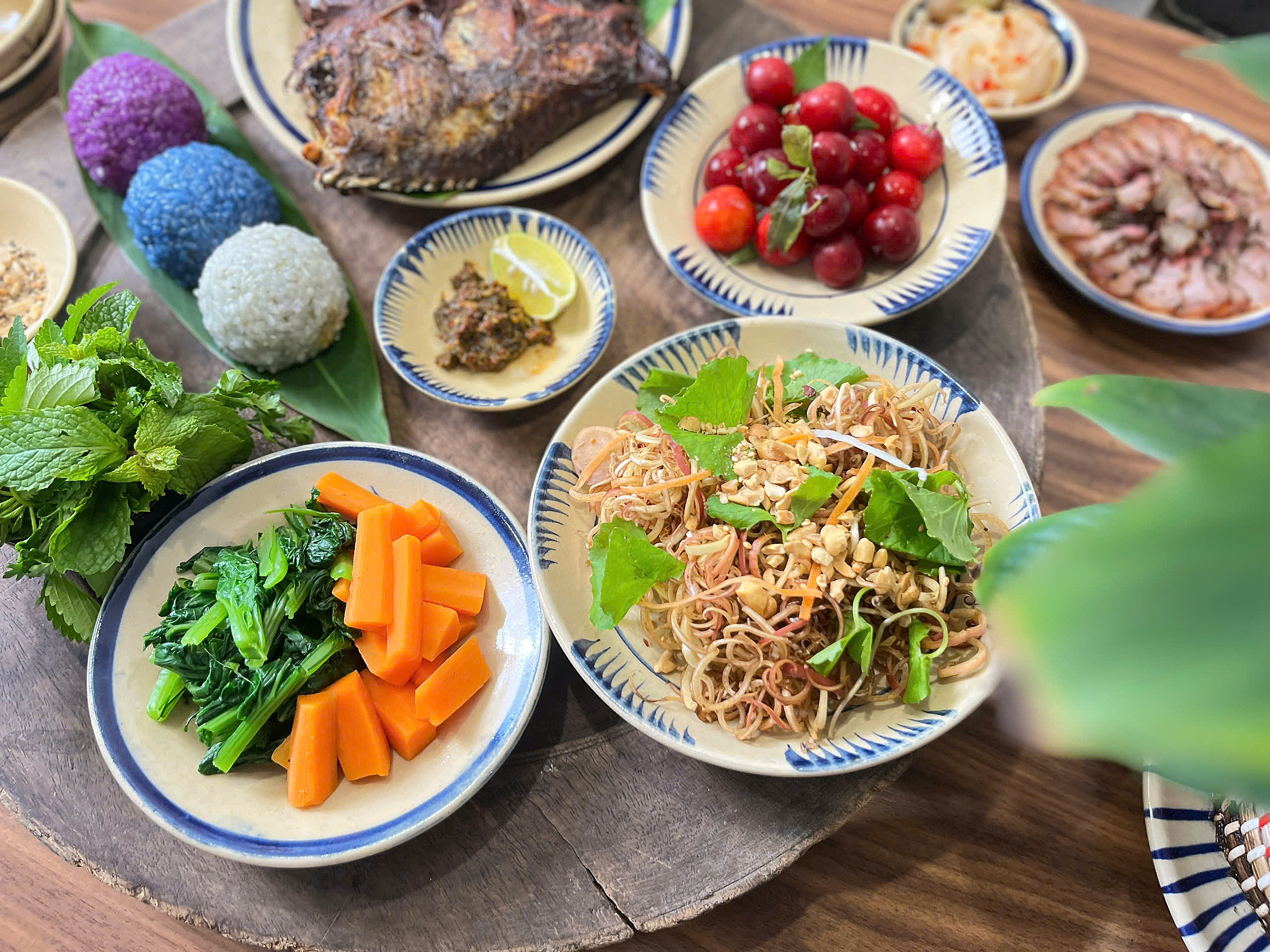Associate Professor, Dr. Bui Thi Nhung, former head of the Department of School and Occupational Nutrition at the National Institute of Nutrition, highlighted this issue at the launch of the community project "Come Home for Dinner - Nurturing Health from the Roots" on 24/8 in Hanoi. The program aims to promote healthy eating habits to improve physical and mental health, starting with home-cooked meals.
There's a paradox in today's societal perception. While adults are increasingly concerned about their health and often restrict their diets, they tend to treat children like bottomless pits, fearing nutritional deficiency and allowing them to eat without limits," Dr. Nhung said. She added that this misconception, combined with the mentality of "compensating" for children after school hours, has led to a serious problem of overnutrition.
The rate of overweight and obesity among Vietnamese students has doubled in the past 10 years, from 8.5% to 19%, according to the Ministry of Health. The figure in major cities is 26%, approaching that of developed countries. Childhood obesity is a ticking time bomb, contributing to the burden of non-communicable diseases and eroding health in the future.
The consequence is a rise in diseases typically seen in adults now appearing in children, including obesity, gout, and high cholesterol. Dr. Nhung recounted cases of an 18-month-old with a cholesterol level of 6.9 and a uric acid level over 500—alarming figures usually found in older adults with gout. She also mentioned a 14-year-old already on high doses of medication for high cholesterol.
Upon realizing their child is obese, many families resort to unscientific weight loss methods, often gleaned from social media. A common mistake is eliminating rice and focusing on meat and supplements. Dr. Nhung emphasized that rice remains a cornerstone of the Vietnamese diet. Instead of cutting it out, she recommends maintaining traditional meals with rice, vegetables, soup, and fish, along with a variety of foods to provide more than 40 essential micronutrients daily. Weight loss should be approached scientifically through nutritional interventions and exercise tailored to each individual.
 |
A nutritious family meal includes rice, vegetables, meat, and fish. Photo: Chef Hai Anh |
A nutritious family meal includes rice, vegetables, meat, and fish. Photo: Chef Hai Anh
At the seminar, experts also discussed how busy modern life leads many families to eat separately and hurriedly, losing connection with themselves and loved ones. This increases the risk of illness, metabolic disorders, and emotional imbalance. Establishing healthy eating habits is crucial for lifelong well-being.
Duong Thi Hai Anh, a nutritional chef, traditional medicine practitioner, and founder of the project, noted that "eating quickly, late at night, or unbalanced meals" is becoming a trend, especially among young people. Due to busy schedules, they haven't prioritized daily meals. Many meals, while filling, are "empty," lacking essential nutrients.
"From busy schedules, unbalanced eating habits, and a disconnection from meals, the body develops initial biological disorders, leading to increasingly younger onset of diseases," Ms. Hai Anh said.
Home-cooked meals not only provide nourishment but also strengthen family bonds and preserve traditional culinary values, creating a foundation for a healthy Vietnamese generation. The project aims to rekindle the love for home cooking and create a community movement to mitigate the consequences of busy lives by returning to the family dinner table—eating right, connecting sufficiently, and balancing nutrition.
By the end of 2030, the project aims to help one million Vietnamese people access and practice "balanced home-cooked meals," increase the rate of home-cooked meals among young families, and raise the frequency of shared meals from 1.7 times per week to 4.
Le Nga












